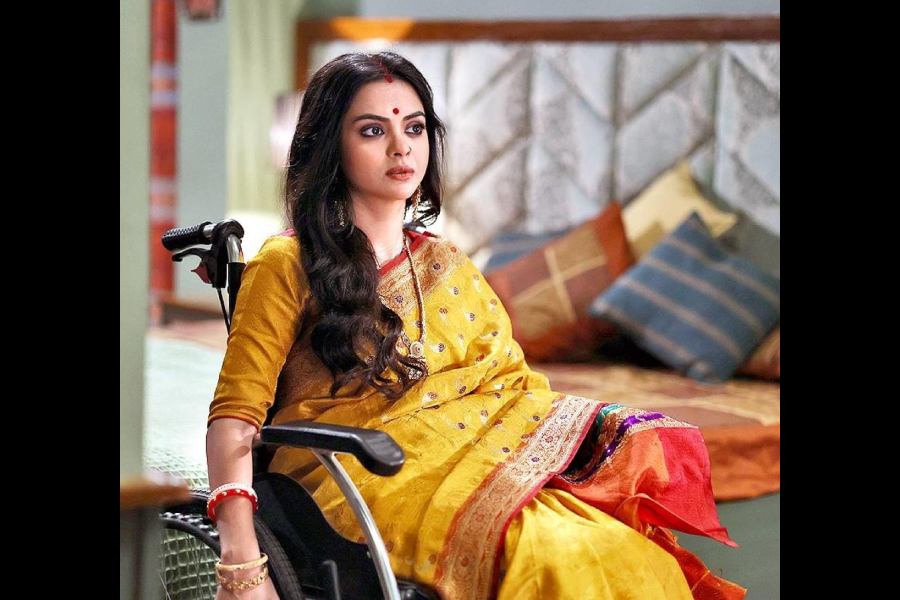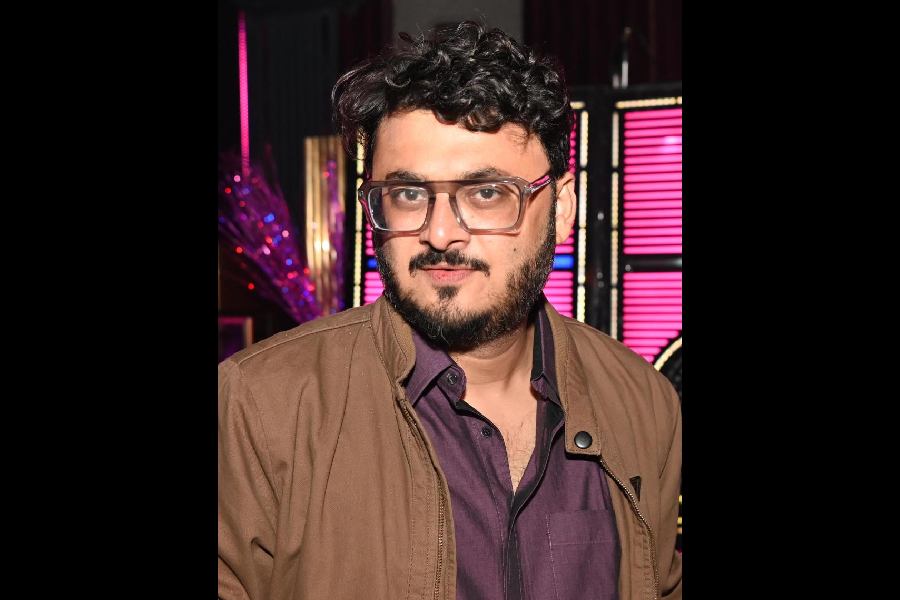To stream from June 21, the upcoming Hoichoi web series Boka Bakshote Bondi (directed by Debaloy Bhattacharya) will deal with the identity crisis of an actress in a television serial.
Ami ke, a song from the series, dropped recently on social media and instantly grabbed the attention of netizens with its soft, cadenced rhythms and fervent, meaningful lyrics.
Featuring Solanki Roy in the lead who essays the role of the actress Opola, the song tells the story of trying to find oneself amid the chaos and complexities of life. Sung by Indra, it poses a series of hypothetical questions that try to assess one’s place in the larger scheme of things by seeking out one’s own identity and purpose. The song plays out as Opola is seen enacting her role as a wheelchair-bound woman, Sandhyamani. Alternately, it crisscrosses with scenes from her real life. Opola is seen dating or spending time with her partner — relaxing, chatting, eating ice-creams or riding pillion on his motorbike — with whom she appears to have a stable, happy relationship.

A moment from Boka Bakshote Bondi
However, not all seems to be okay when she is on set. Though she plays the central character in a television serial that has gained widespread popularity among the audience, at times Opola seems distracted and even a trifle reluctant to step into her screen role. As the song seems to suggest, Opola feels trapped between her reel and real-life identities. Her two identities, though very different from each other, intersect and overlap in strange ways, leaving Opola confused about who she truly is. There comes a point when she even compares her real-life relationship with her relationship with her screen partner. She tries to escape her predicament but in vain.

Debaloy Bhattacharya at a party thrown by Hoichoi at M Bar in January.
At times, her screen identity overrides her real persona, making her lose her real self. On the last day of the shoot, the video portrays Opola taking a drastic step, breaking free from the barriers imposed by her two conflicting identities, and getting away from it all. She stands on the shooting floor in darkness as the song’s gentle refrain reminds and encourages her to rediscover, understand and value her own self, away from the spotlight of cameras or the expectations of society.
